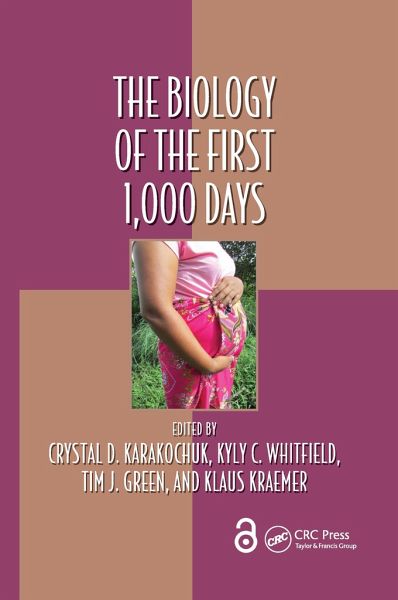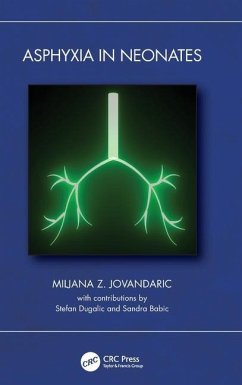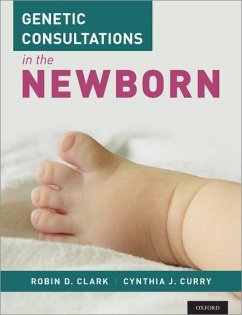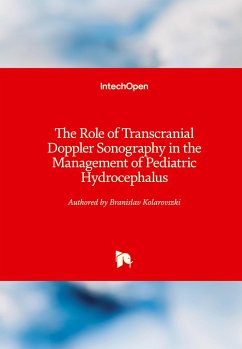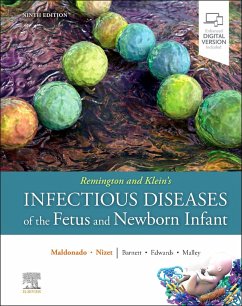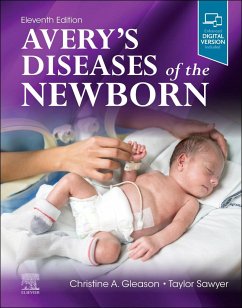Broschiertes Buch
The Biology of the First 1,000 Days
Versandkostenfrei!
Versandfertig in 1-2 Wochen
Weitere Ausgaben:

PAYBACK Punkte
49 °P sammeln!




Exposures to dietary, environmental, hormonal, and other stressors during this window have been associated with an increased risk of poor health outcomes, some of which are irreversible. This book explores this concept across biological disciplines, linking concepts related to all biological fields to outcomes during the first 1,000 days and bey
Crystal D. Karakochuk, PhD, RD, is an assistant professor in the Department of Food, Nutrition, and Health at the University of British Columbia, and an investigator in Healthy Starts at BC Children's Hospital, Vancouver, British Columbia, Canada. She has worked internationally as a nutritionist for the United Nations World Food Programme (Rwanda, Malawi, Ethiopia, and Rome) and UNICEF (New York and Timor-Leste). Her research focuses on anemia, nutritional biomarkers (namely, iron and zinc), the effect of inflammation on nutritional biomarkers, and genetic hemo-globinopathies and blood disorders (e.g., sickle cell). Kyly C. Whitfield, PhD, is an assistant professor in the Department of Applied Human Nutrition at Mount Saint Vincent University, Halifax, Nova Scotia, Canada. Her research focuses on identifying culturally appropriate public health interven-tions to combat micronutrient deficiencies in low-resource settings, particularly among lactating mothers and their infants. Her current work explores fortification to address thiamin deficiency among breastfed infants in Southeast Asia. She is also interested in exploring the long-term effects of infant feeding behaviors on disease risk later in life. Tim J. Green, PhD, is a principal nutritionist in the Healthy Mothers, Babies, and Children Theme at the South Australian Health and Medical Research Institute, and an affiliate professor in the Discipline of Paediatrics at the University of Adelaide, Adelaide, Australia. His research focuses on micronutrients in prepregnancy, preg-nancy, lactation, and early life with studies conducted in Canada, Oceania, Asia, and Africa. His group seeks to identify micronutrient deficiencies through nutrition surveys, better define micronutrient requirements and pregnancy outcomes in these groups through randomized control studies, and develop sustainable strategies to improve micronutrient status. Klaus Kraemer, PhD, is the managing director of the Sight and Life Foundation, a nutrition think tank working toward a world free from malnutrition, headquar-tered in Basel, Switzerland; and an adjunct associate professor in the Department of International Health of Johns Hopkins Bloomberg School of Public Health, Baltimore, Maryland. With over 30 years of experience in research and advocacy in the field of nutrition and health, he has developed an expertise in nutrition and safety of micronutrients, and translating discovery research into effective and tai-lored nutrition solutions at scale. He is a member of the Steering Committee of the Micronutrient Forum, Executive Committee of the Home Fortification Technical Advisory Group, Executive Board of the Mongolian Health Initiative, and a found-ing member of the Society for Implementation Science in Nutrition, among others.
Produktdetails
- Verlag: CRC Press
- Seitenzahl: 520
- Erscheinungstermin: 30. März 2021
- Englisch
- Abmessung: 234mm x 156mm x 28mm
- Gewicht: 781g
- ISBN-13: 9780367657697
- ISBN-10: 0367657694
- Artikelnr.: 60601617
Herstellerkennzeichnung
Libri GmbH
Europaallee 1
36244 Bad Hersfeld
gpsr@libri.de
Für dieses Produkt wurde noch keine Bewertung abgegeben. Wir würden uns sehr freuen, wenn du die erste Bewertung schreibst!
Eine Bewertung schreiben
Eine Bewertung schreiben
Andere Kunden interessierten sich für




